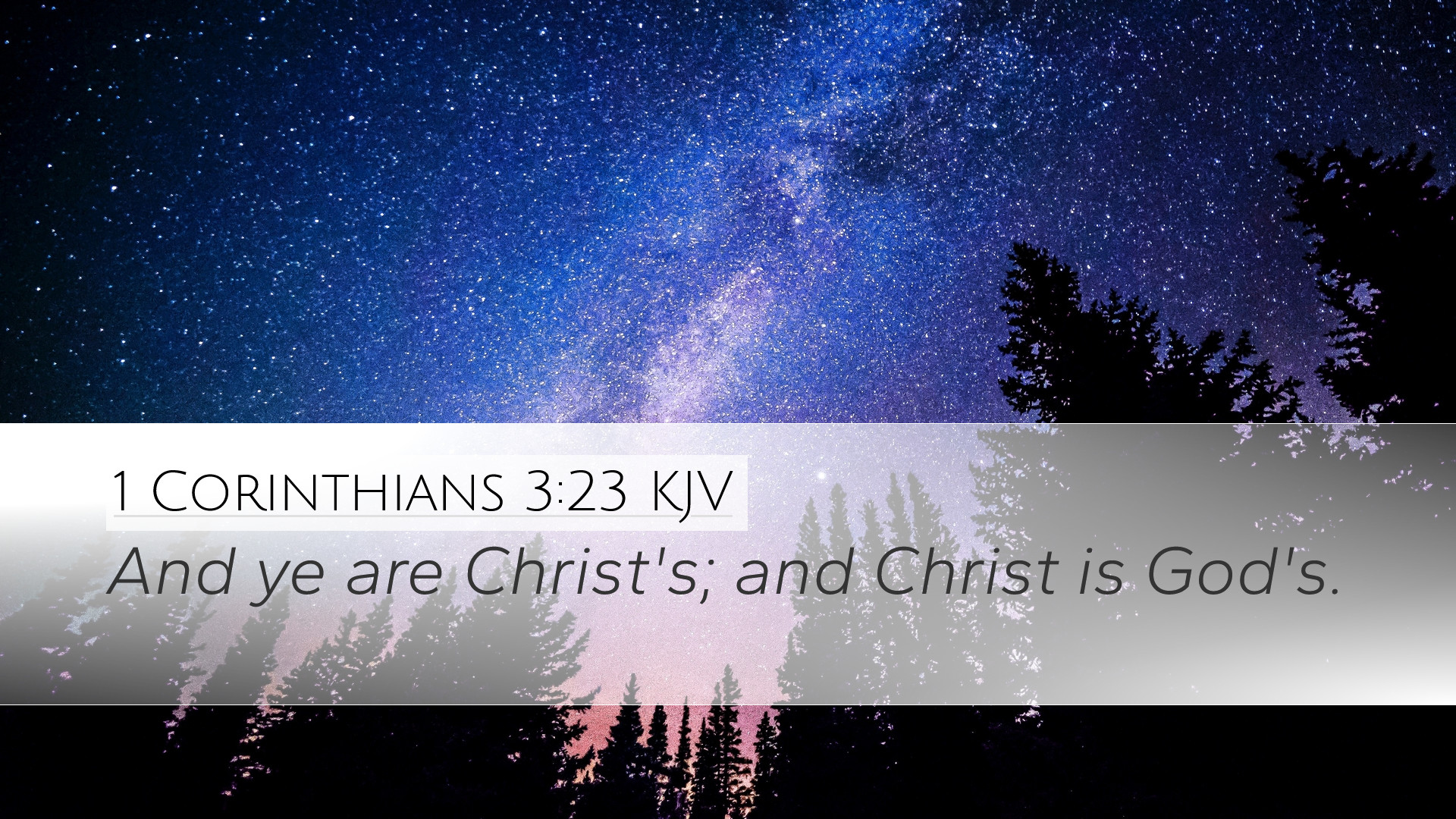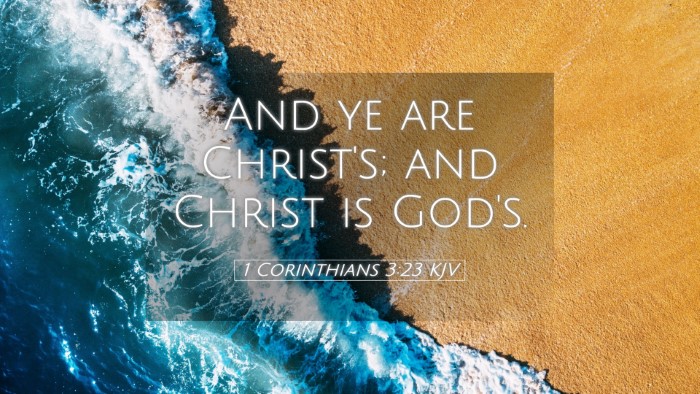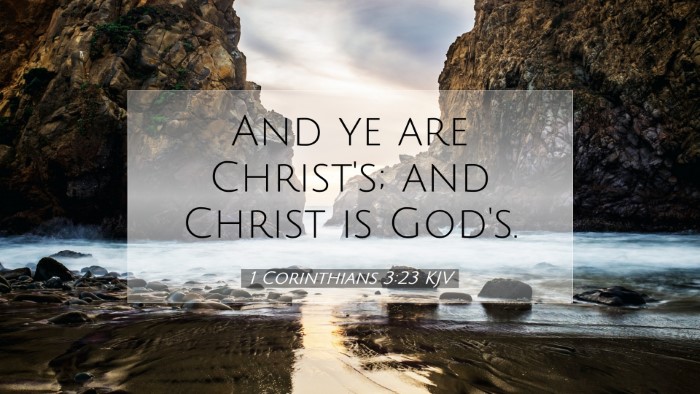Commentary on 1 Corinthians 3:23
Verse: “And ye are Christ's; and Christ is God's.”
Introduction
This verse encapsulates a profound truth about the relationship between believers, Christ, and God the Father. The Apostle Paul, in his epistle to the Corinthians, addresses the issues of division and factionalism within the church, emphasizing unity in Christ. The commentary below draws insights from public domain sources such as Matthew Henry, Albert Barnes, and Adam Clarke, providing a comprehensive exploration of this verse and its theological implications.
Exegesis of the Verse
The phrase “And ye are Christ's” indicates a belonging or possession. It suggests that the believers in Corinth are not merely followers but are in a deep, committed relationship with Christ. Matthew Henry notes that this ownership entails not just a claim but a transformative union. Paul emphasizes that this relationship with Christ comes with responsibilities and privileges.
The latter part, “and Christ is God's,” highlights the distinct relationship between Christ and God. Adam Clarke elaborates that Christ, as the Messiah and Son of God, ultimately belongs to God the Father, signifying His divine mission and authority. This statement reinforces the idea that Christ fulfills God's plan of salvation, and believers are integral to this divine plan.
Theological Implications
1. Belonging to Christ
-
Being “Christ's” means that believers are redeemed, set apart, and have a new identity. As Albert Barnes suggests, this denotes a special relationship characterized by commitment and love. The church, therefore, should reflect this unity and commitment to one another as part of Christ's body.
-
The communal aspect of this relationship is significant; the implications stretch beyond individual identity to corporate identity as the church. This truth urges believers to live in accordance with their identity in Christ, fostering unity rather than division.
2. Christ's Relationship to God
-
The phrase “Christ is God's” affirms Christ's divinity and His obedience to the Father. Henry explains how this illustrates the perfect harmony within the Trinity. Understanding Christ’s relationship to God helps believers appreciate the divine authority of Christ’s teachings and actions.
-
This relationship also implies that Christ serves as the mediator between God and humanity. Adam Clarke points out that recognizing this mediatorial role emphasizes the necessity of reverence and submission to Christ, who is God’s appointed Savior.
Practical Applications
The implications of belonging to Christ and recognizing His authority over the church call believers to practical actions in their daily lives.
-
Unity in the Church: Recognizing that collectively, we belong to Christ encourages believers to work towards unity, abandoning divisive practices and focusing on their shared identity in Christ.
-
Living Out Our Identity: As “Christ's,” believers are encouraged to reflect this identity in their actions, considering how they represent Christ to the world and within the church fellowship.
-
Submission to Christ: The acknowledgment that “Christ is God's” reinforces the need for submission to His teachings and lordship. Believers are called to live in obedience and to model their lives after Christ, who perfectly fulfilled God's will.
Conclusion
1 Corinthians 3:23 serves as a powerful reminder of the believer's identity in relation to Christ and God. The insights provided from respected commentators invite deeper reflection on the communal and personal aspects of faith. For pastors, students, theologians, and scholars, this verse highlights critical theological truths that challenge and inspire the church towards unity, obedience, and living out the divine mission given to them.


